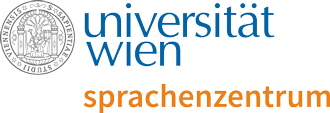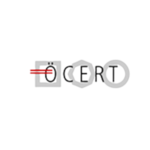Course Levels & Placement Tests
Yes. We offer beginners' courses (A1/1) in every language.
Please note: Knowledge of the Latin alphabet is a basic requirement for our German courses.
If you already have (some) knowledge of the language, it would be advisable to take a placement test in order to determine from which level you should start.
Further information on Profiency Levels & Placement Tests
In order to determine whether you should start from level A1/1, it would be advisable to take a placement test.
Further information on Profiency Levels & Placement Tests
In principle, teaching will be carried out in the target language. In German courses, explanations in English will only be given in exceptional cases. In foreign language courses, the trainer may offer some explanations in German, as well.
This depends on a number of factors:
- course track, respectively course intensity
- your previous level of proficiency, i.e. the course level you start from
- passing grades in the previous course level, allowing you to move on to the next
- your willingness to concern yourself with the language outside the classroom (reading newspapers in the target language, watching TV, listening to the radio, interaction with native speakers of the language, etc.)
In order to determine the right course level for you, we recommend that you take a placement test. The dates the placement tests are scheduled for are available here.
A placement test is mandatory when registering for your first German course at the Language Center, except if you can produce a Goethe or ÖSD certificate. NB: Your certificate has to be issued within the last 12 months with minimum scores of 80% for each of the four language skills (listening, reading, writing and speaking).
If no placement tests are offered for the foreign language of your choice, you can carry out a self-assessment, based on our checklists.
If you are not sure what course level to choose, you can take a placement test in many foreign languages. You will find the test schedule at Proficiency Levels & Placement.
If no placement tests are offered for the foreign language of your choice, you can carry out a self-assessment, based on our checklists.
People who are joining a German course at the Language Center for the first time or completed their last course more than one year ago have to take a placement test prior to the course start.
Alternatively, you may produce a Goethe or ÖSD certificate, which has been issued within the last 12 months with minimum scores of 80% for each of the four language skills (listening, reading, writing, and speaking).
Yes, you do, for the first German course you attend at the Language Center or after a break of more than one year.
(Exception: course level A1/1 and holders of a Goethe or ÖSD certificate - issued within the last 12 months and minimum scores of 80% for each of the four language skills.)
If you have previously attended a German course at the Language Center, you can register directly for the next course level via the customer login.
You can, but do not have to take a placement test in order to register for a foreign language course. You can sign up directly for the course level of your choice.
Some Placement Tests for Foreign Languages are available online. Please register via our booking system.
Placement Tests for German Courses are conducted online. We will send further information to you after completing your registration via our booking system for courses „with placement test“.
We recognize Goethe and ÖSD certificates if they have been acquired within the last 12 months and certify minimum scores of 80% for each of the four language skills (listening, reading, writing and speaking).
Online registration via our booking system: Please register for a course without a specific level assigned (with placment test) and send your certificate via e-mail.
On-site registration at our Office: Please bring your certificate along.
If you should not be certain that your current level of language proficiency still corresponds to the one attested by your certificate, you are of course welcome to take a placement test during registration period.
Our course level system is based on the course levels of the Common European Framework of Reference for Languages (CEFR): A1, A2, B1, B2, C1, C2.
Most course levels are subdivided into two phases - in German, for example, level A1 is subdivided into phases A1/1 and A1/2.
Different numbers of course phases may be necessary to achieve each respective level in different languages. Thus, in foreign languages which use different writing systems (scripts), level A1 is subdivided into 3 course phases. As a rule, higher levels in foreign languages are also subdivided into 3 phases.
It is only after successful completion of the highest phase of every course level, e.g. A1/2 in German, or B1/3 in French, that a specific level of proficiency according to CEFR is achieved: A1, respectively B1, in our examples.
Our courses are designed didactically as building blocks. We strongly recommend progressive completion of all successive course phases and levels in foreign languages.
Passing-grade completion of each course phase is a pre-requirement for advancing to the the next phase in our German courses.
The Common European Framework of Reference for Languages (CEFR) is a classification of language proficiency levels in the process of foreign language acquisition, created by the European Council. The purpose of this classification is the international comparability of language proficiency levels.
CEFR includes three steps: basic step A, intermediate step B and advanced step C. Each of these steps is, in turn, divided into 2 levels. Thus, there are a total of six proficiency levels according to CEFR: A1, A2, B1, B2, C1 and C2.
Detailed information is available on the website of the European Council.
Which level of proficiency you will be required to achieve will depend on your personal objectives and/or the specific requirements of institutions/organizations (e.g. your university). There is no stringent necessity for you to reach level C2 in order to be able to communicate adequately in a foreign language.
The aim of our courses is for participants to reach and enhance communication skills in general situations of life. Simple, every-day communication is already possible in the A levels. For professional communication, it is advisable to gain proficiency in the B levels. C-level courses provide proficiency in high-level communication in the academic environment and aim at near perfection in the language.
We do not offer brush-up courses. If you learned the language at some point in the past, we recommend that you take a placement test in order to determine from what level to start.
If no placement tests are offered for the foreign language of your choice, you can carry out a self-assessment based on our checklists.
The German courses offered at the Language Center are geared on preparing participants for university programs of study in German. It is therefore very important for you to reach equally good proficiency levels in all four language skills (reading and listening comprehension, writing and speaking). In order to successfully achieve this course objective, we are very mindful of harmonizing our groups in terms of level homogeneity. This renders placement tests stringently necessary (except if you hold a Goethe or ÖSD certificate; or have no previous knowledge in German).
Participants of German Courses for the University Preparation Programme (VWU) have to sit a special placement test. Further information
The German placement test is an assessment of your speaking and writing skills. It includes a short conversation, a multiple-choice test and a writing task.
The test will usually take place online. You will receive further information after completing your registration via our booking system.
Participants of German Courses for the University Preparation Programme (VWU) have to sit a special placement test. Further information
No. Our counseling interviews for certain langugages are offered as supplementary support for your self-assessment.
Further information can be found at Course Levels and Placement.
You can carry out a self-assessment based on our checklists. Perusal of the relevant textbooks can also provide insight.
Taking the placement test repeatedly is possible for foreign language courses.
NB: In the case of German courses, you can only re-sit the placement test six months after your first test or your latest end-of-course test.
Taking the placement test repeatedly is possible for foreign language courses.
NB: In the case of German courses, you can only re-sit the placement test six months after your first test or your latest end-of-course test.
No preparation is necessary.


